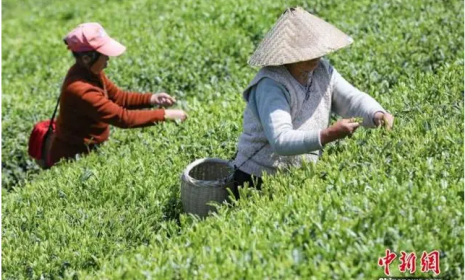关于肉食鸡的福利法规
改善肉食鸡福利的法规旨在通过制定更为严格的福利标准,来减少肉食鸡过于拥挤的状况。
新法规规定,肉食鸡最大养殖密度为33公斤/平方米,如若符合更为严格的福利标准,比如安装能保持氨、二氧化碳温度和湿度在严格的参数范围内的通风系统,这一数字可提高至每平方米39公斤。如果在一段时间里能一直符合很高的福利标准,养殖密度可每平方米再增加3公斤。这要视低死亡率和良好的管理规范指南而定。新法规还制定了其他一系列如灯光、垫草、饲养和通风要求等适用于肉食鸡舍的严格标准。比如,照明一定要保证一段时间的黑暗以让肉鸡能够休息,要经常为肉鸡提供新鲜的垫草和适当的换气。严重受伤的鸡要予以及时救治,或以人道的方式进行宰杀。迄今为止,尚无法规来规定肉食鸡必须分配多大的空间,因此,这一规定将对集中饲养的肉食鸡的福利产生重大影响。
由于动物福利更多地依赖于负责饲养的相关人员,指令规定对所有肉鸡养殖户进行培训和认证要求。每天对所有鸡禽必须检查两次以上,密切观察可能出现的动物健康或福利问题。另外,要在与动物健康和福利事项相关的材料上详细记录诸如鸡舍温度、湿度、实施的医疗处理和死亡率的数据。
指令还要求欧委会根据成员国收集的科学数据和实证,将来推出更进一步的措施。另外,为了鼓励欧盟国家和第三国的肉鸡生产商采取尽可能高的福利标准,并让那些符合高福利标准的生产商从这一具有竞争性的优势中获益,理事会当天还通过了动物福利标签的结论。指令邀请欧委会就在鸡肉上采用特殊福利标签这种做法草拟一份报告。欧委会将仔细研究这一问题,并就不同做法进行报告。
指令一旦通过,在《官方公报》发表20天后随即生效,且所有成员国须于2010年6月前执行。
http://europa.eu/rapid/pressReleasesAction.do?reference=IP/07/630&format=HTML&aged=0&language=EN
Commissioner Kyprianou welcomes Council agreement on animal welfare rules for broilers
IP/07/630 Brussels, 7 May 2007
Commissioner Kyprianou welcomes Council agreement on animal welfare rules for broilers
Markos Kyprianou, European Commissioner for Health, has welcomed the Council's political agreement today on new rules to improve the welfare of chickens kept for meat production (broilers). The Directive aims to reduce the overcrowding of chickens, by setting a maximum stocking density of 33kg/m2, or 39kg/m2 if stricter welfare standards are met. The new legislation also lays down a number of other conditions to ensure better animal welfare, such as lighting, litter, feeding, and ventilation requirements. The Directive also provides for the Commission to possibly introduce further measures in the future, based on the scientific data and practical evidence collected by the Member States. The Council also adopted today conclusions on animal welfare labelling and the Commission will now carefully study this issue and report on the various options.
Commissioner Kyprianou said: "EU consumers have repeatedly expressed concern at the welfare problems that can arise through intensive chicken farming. The Directive agreed today brings forward for the first time important rules for the animal welfare of broilers. While today's political agreement modifies our original proposal in certain respects, it is still a great step forward to improve the conditions under which broilers are kept. Not only will this result in better animal welfare across Europe, but it should also contribute to improving the health of the birds and the quality of their meat. With the goal of obtaining the highest possible welfare levels for broilers, the Commission has committed to continuing its work on this issue and will report back on any further provisions that could improve the welfare of these birds across Europe."
More space per chicken
Under the proposal agreed by Council today, a maximum stocking density of 33kg live animals per square meter should be set. This can rise to 39kg/m2 if extra welfare measures are taken, for example the installation of ventilation systems that keep the ammonia, CO2 temperature and humidity levels within strict parameters. It was also agreed today that if exceptionally high welfare standards are met over a continual period, the stocking density could be increased by 3 kg/m2. This is conditional on the application of lower mortality rates and guides to good management practice. Up to now, there have been no rules on the space that must be allocated to broilers, so this provision will have a significant impact on the wellbeing of intensively reared chickens.
Better conditions
The Directive also details new strict standards that must be applied in the housing of the broilers. For example, lighting must include minimum periods of darkness to allow the chickens to rest, fresh litter must be permanently available and proper ventilation must be in place. Any chickens that are seriously injured must be immediately treated or culled in a humane manner.
Stricter requirements for operators
As the welfare of animals relies largely on the people who are handling them, the Directive sets out training and certification requirements for all intensively reared chicken keepers. All chickens must be inspected at least twice a day, paying close attention for any animal health or welfare problems that may arise. Moreover, detailed records must be kept on matters that are relevant for the health and the welfare of the animals, such as the temperature and humidity in the holdings, medical treatments administered and mortality rates.
Continuing the work
The Directive gives the Commission a mandate to look into further welfare provisions for broiler chickens in the future. Welfare data from slaughterhouses in Member States will be collected EU wide. On the basis of this data, the Commission will determine whether additional measures would be beneficial. Moreover, in order to provide an incentive to both EU and third country producers to strive for the highest possible welfare levels and to allow operators who meet high standards to benefit from the competitive advantage this offers, the Directive invites the Commission to prepare a report on the possible introduction of specific welfare labelling for chicken meat. The Commission will consider integrating this task into a broader project, agreed within the Council conclusions on animal welfare labelling today.
Next steps
once adopted, the Directive will enter into force 20 days after its publication in the Official Journal, and must be implemented by all Member States by June 2010 at the latest.
http://europa.eu/rapid/pressReleasesAction.do?reference=IP/07/630&format=HTML&aged=0&language=EN
日期:2007-07-24
















